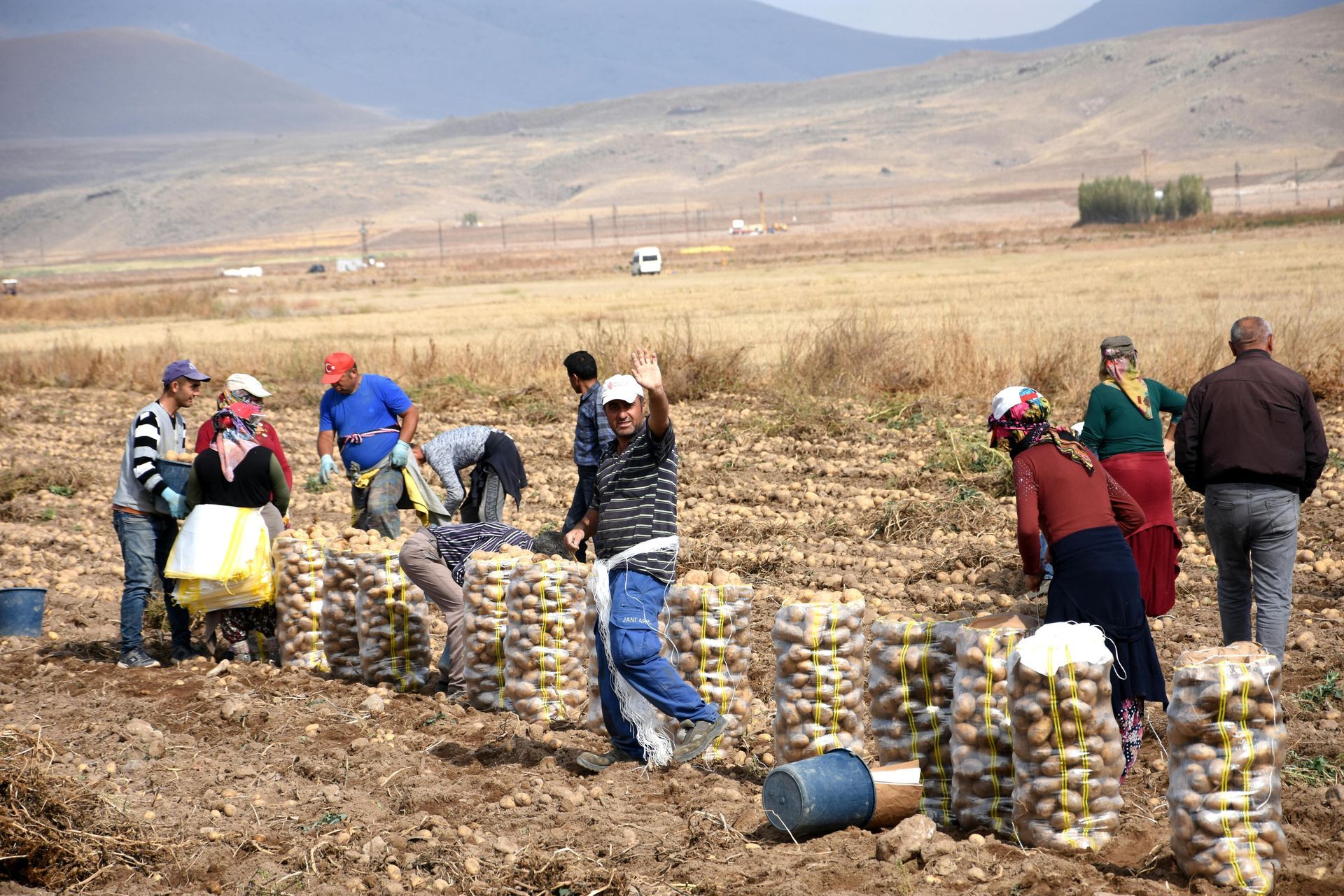Why Labor Traffickers Often Go Unreported🦋
Despite their heinous crimes, did you know that many labor traffickers often go unreported? Trapped workers in forced labor situations often face physical abuse or poor living conditions. They can be found in industries that offer domestic work and agricultural jobs, where they may be dealing with abusive supervisors they can't escape.
This post will help you understand why many of those guilty of labor exploitation in Michigan have yet to be caught, and also share how you can support victims through resources like the National Human Trafficking Hotline and learning the signs to watch out for.
Key Takeaways
- Labor traffickers often go unreported because they threaten their victims with violence and lies. They often take away workers' identity documents or even threaten to call immigration authorities.
- Many victims don't even realize they are being trafficked. A large number of people believe that human trafficking only involves commercial sex acts, however labor trafficking is common in everyday places like farms and factories across Michigan and the U.S.
- Both language barriers as well as a fear of deportation prevent many victims from reaching out to the U.S. Department of Labor or Homeland Security for help. They may depend on their traffickers for food or shelter, making them even more vulnerable.
- Law enforcement regularly struggles to identify labor traffickers because these cases often rely on labor victims speaking out. Very few witnesses come forward because they are scared of retaliation. This puts limits on the data and number of incidences even after high-profile cases like Operation Blooming Onion in Georgia.
- Support services like the National Human Trafficking Hotline makes it easier to detect trafficking, however public awareness remains low. The International Labour Organization estimates that millions of people are trapped into forced labor worldwide every year.
Key Reasons Labor Traffickers Go Unreported
Labor traffickers often remain unidentified due to the fear and intimidation tactics they use on their victims to stay silent. Many victims may not even recognize their situation as trafficking.
Fear Tactics Used by Traffickers
Traffickers are known for using threats and violence to control victims of labor trafficking. They often take away identity documents like passports from foreign workers, making it almost impossible for them to escape.
Some traffickers threaten to expose undocumented workers including domestic workers, farmworkers, or those with temporary visas to the United States government if they attempt to leave.
Victims may become trapped into debt bondage and forced to work off very high recruitment fees that seem impossible to pay off. Many work long hours in garment factories, nail salons, in traveling sales crews, or food service jobs under constant surveillance.
Traffickers may threaten their family members back in their home country if they are worried about workers speaking up about the abuse or poor working conditions. They may even leverage psychological coercion, like telling victims that law enforcement agencies will not help them because of their immigration status or legal concerns under the Trafficking Victims Protection Act.
Lack of Awareness and Recognition of Labor Trafficking
Many Michigan residents falsely believe that all human trafficking involves sexual exploitation, however, this is far from true. Labor trafficking affects many people across the globe, yet most are not aware of the warning signs.
You might not even notice child labor or workers facing threats right under your nose. The crimes often occur in areas like agricultural work, restaurants, foster care, or private homes. Even U.S. citizens can become labor trafficking victims...legal status does not protect someone from enduring abuse.
The Department of Justice has found that both adults and children can become victims of involuntary servitude, and may be subject to harsh working conditions, even in developed areas.
Migrant workers are often lured to the U.S. with false promises of a better life. Instead, they experience forms of labor exploitation like unpaid wages or unsafe housing. Anti-trafficking organizations have made it known that myths about human trafficking make it easier to keep these cases hidden from local law enforcement, support systems, and donors that want to help.
The International Labour Organization estimates that millions of people are trapped or tricked into forced labor each year. Unfortunately, large-scale investigations are rare in Michigan and other states across the U.S. due to the lack of recognition by officials and the public alike.
Support services like the National Human Trafficking Resource Center have created resources to educate the public about red flags on how to identify potential victims, but they need your help to spreading awareness - for example, on social media platforms.
Barriers to Reporting, Including Immigration Status and Language
Victims of human trafficking tend to fear identifying labor traffickers because of their immigration status or language barriers. Traffickers use threats of deportation and the use of force to ensure their victims stay silent.
Many workers in domestic servitude or forced labor situations rely on their traffickers for food and shelter. This gives them even more power over their workers.
When you see someone who doesn't have access to their own identification documents or has been forced into work at below minimum wage, these can be interpreted as red flags of labor trafficking.
The National Institute of Justice found that the isolation imposed on them by human traffickers keeps victims hidden away from federal law enforcement and critical support resources. Companies that subcontract cheap labor services are often unknowingly hiring workers that are subject to forms of human trafficking across Michigan.
Language barriers can also make it difficult for task forces to identify investigate human trafficking cases quickly in areas like domestic labor, since workers can't communicate their needs or situation accurately.
Challenges in Law Enforcement and Prosecution
Law enforcement faces many challenges when it comes to addressing labor trafficking cases. Traffickers can easily operate their crimes in plain sight, making it difficult for authorities to find them.
Many trafficking victims never even recognize their situations as trafficking, limiting the number of reports made directly to law enforcement. Agencies like the U.S. Department of Labor and the Department of Homeland Security attempt to combat human trafficking through both civil enforcement of federal labor laws.
Unfortunately, these efforts can fall short against more sophisticated trafficking networks.
Prosecutors may also face problems when reviewing trials related to claims of forced labor. They often don't have enough accurate evidence due to a lack of victim testimony or the support from witnesses who are scared of trafficker retaliation.
This can prevent successful prosecutions and unfortunately gives traffickers an advantage in legal systems in Michigan and beyond.
Help Labor Trafficking Victims
Labor traffickers are often able to evade getting caught because of the fear and manipulation tactics they instill on their victims. Those trapped into forced labor are often hesitant to report their situation, fearful of retaliation or getting deported. Additionally, many people in local communities are unaware of the signs of labor trafficking.
By understanding these challenges, you can help support victims and better contribute to solutions within your local Michigan community. If you or someone you know has been subject to labor trafficking, HOPE Against Trafficking can help. Reach out and speak confidentially with our team today.
FAQs
1. Why do human traffickers often go unreported by victims?
Many human trafficking victims are subject to threats, economic hardship, and lack of control. This in addition to language barriers may prevent them from seeking help.
2. How does child sex trafficking remain hidden from authorities?
In child sex trafficking, children are unable to report abuse out of fear or threats of violence and more by traffickers. They often control their actions and block access to other resources that could help them escape.
3. What role does economic hardship play in labor cases going unreported?
Economic hardship makes it hard for trafficking victims to leave dangerous jobs or fight back against their traffickers. Many of these victims depend on these jobs for food and shelter and will never report trafficking abuses.
4. Where can people find more information about stopping labor trafficking?
The Bureau of International Labor Affairs can provide facts, reports, and additional resources that can help your local community fight human trafficking. You can also visit the HOPE Against Trafficking website for more details.






